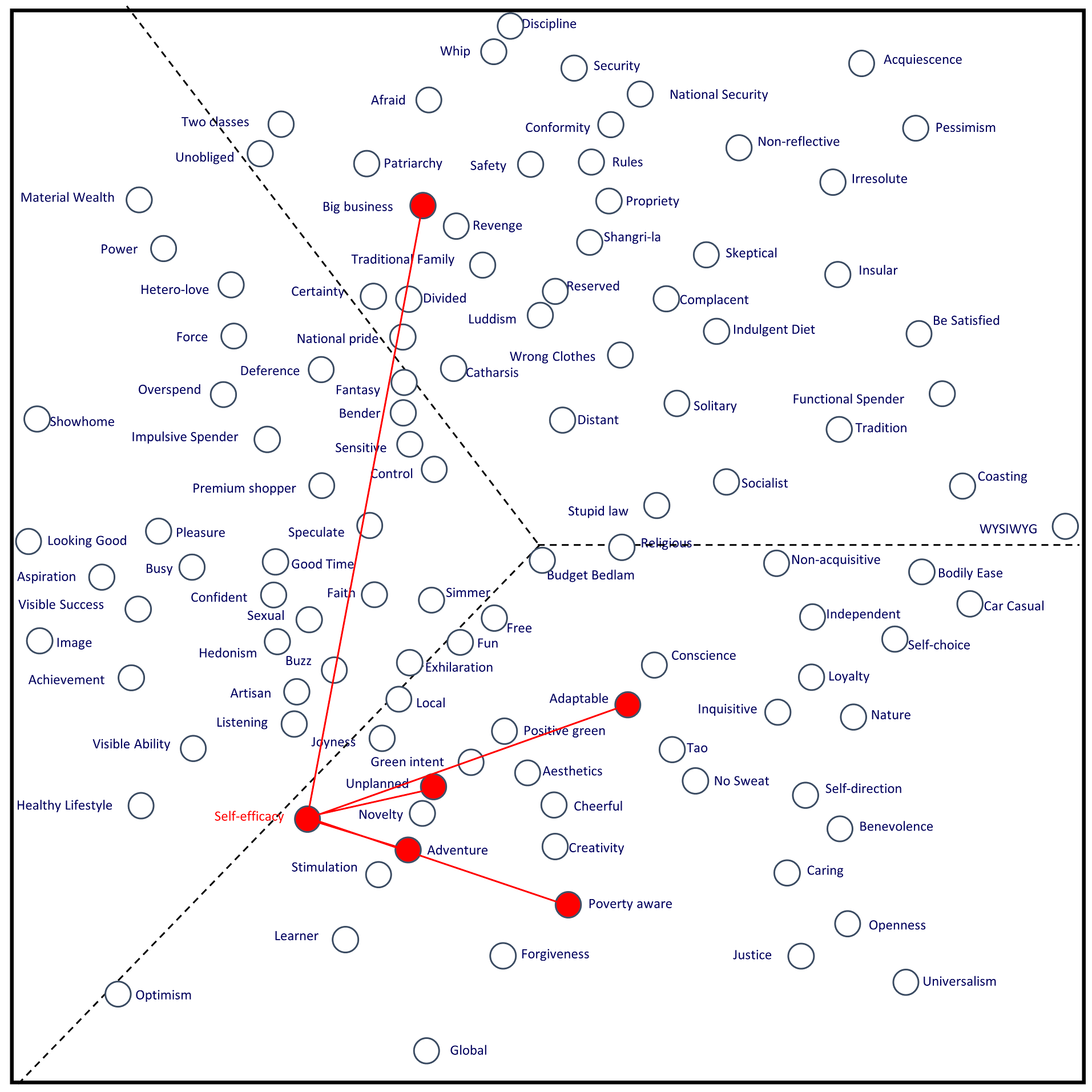

SELF-EFFICACY
 |
I am excited by the underlying uncertainties of life. They force me to make and take responsibility for my own choices.
Self-efficacy is about the strength of your belief in your own ability to make sound decisions, to complete tasks and to reach goals in a rapidly changing world.
This concept is central to Albert Bandura’s social cognitive theory, in which self-efficacious people are more likely to view difficult tasks as something to be mastered rather than something to be avoided. This corresponds with our data, which shows that the Self-efficacy attribute attracts people who like to be tested by the University of Life — forcing them to make and take responsibilities for their own choices.
For Self-efficacy espousers, a deep self-confidence, combined with their love of uncertainty and risk taking, fuels a search for adventure and an exciting life. In turn, this lifestyle underpins their willingness to modify continually their beliefs and views about themselves and the world around them. One consequence is that such people feel compelled to question the value and relevance of everyday laws and rules that others may take for granted.
Because they are willing to take full responsibility for their own lives, Self-efficacy espousers tend to believe that others could do likewise. In an ideal world, they would like government to take more of a back seat and let individuals develop truly independent lives. In contrast, they tend to have more respect for large businesses who have survived uncertain, turbulent and rapidly changing times. Such businesses offer a mirror to their core values that encourage a focus more on possibilities and less on the problems in any situation.
This attribute lies at the beating heart of the political philosophy known as compassionate conservatism. Sincerely believing that a free marketplace is the better option for dealing with poverty, followers would like government organisations to take on a more effective and proactive role with regard to reducing the economic divide between the rich and the poor, at home and abroad. However, a ”good” government for Self-efficacy espousers would probably encourage and enable better provision of socially-focussed services without necessarily providing the services themselves.
Using Self-efficacyDemographic Skews: 1) Over-indexed: Male, under 21, also 65+. 2) Under-indexed: Female, 35-64. Self-efficacy espousers also espouse other Attributes. The top five most highly correlated Attributes of Self-efficacy espousers are, in order of the strength of relationship: 1) Poverty aware In total those who espouse Self-efficacy also over-index significantly on 24 other Attributes. |
|
If "Self-efficacy" (or the associated attributes) are important to you and you would like to delve more deeply, contact us at mail@cultdyn.co.uk
